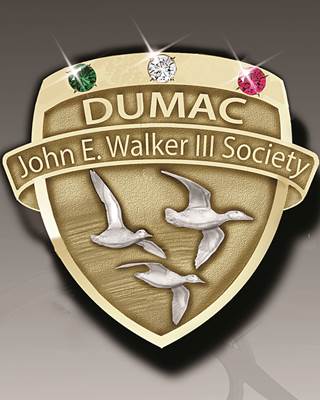John E. Walker Left a Mark on North American Conservation
The late John E. Walker III had a groundbreaking passion for Ducks Unlimited de México (DUMAC) and wetlands conservation
The late John E. Walker III had a groundbreaking passion for Ducks Unlimited de México (DUMAC) and wetlands conservation
The late John E. Walker III had a groundbreaking passion for Ducks Unlimited de Mxico (DUMAC) and wetlands conservation. Walkers vision for what DUMAC could accomplish built a foundation for the tremendous success of the organization over the years.
Walker, from Galveston, Texas, was an instrumental figure in forming Galvestons first DU chapter, serving as area chairman during 19741976. Walkers commitment to DUs mission continued when he became Texas state chairman in 1976, national trustee in 1978, Southern Prairie Region vice president in 1979, Central Flyway senior vice president in 1980, and South Central Flyway senior vice president in 1985. He became a board member of DU Canada in 1989 and reached the top in 1990, becoming DUs 32nd president.

Walker's contributions to North American conservation are commemorated through the John E. Walker Research and Training Center in Celestn, Mexico, and the John E. Walker Society.
Not one to rest on his laurels, Walker turned his attention to Mexico and DUMACs conservation efforts. Current DUMAC President Bill Ansell, who married Walkers daughter, Libbie, remembers when Walker joined the conservation mission south of the border. DUMAC has always faced difficult challenges, Bill says. When John was asked to help, he jumped at the chance. He and current DUMAC CEO Eduardo Carrera [who was DUMACs chief biologist at the time] formed a very close relationship. The two of them are responsible for the DUMAC we know today. They pushed the organization to the next level together.
DUMAC honors Walkers memory through the John E. Walker Research and Training Center in Celestn, Mexico, and through the John E. Walker Society, which is similar to DUs Presidents Council (both require annual donations and comprise the staunchest wetlands conservation supporters and donors).
DUMACs renowned RESERVA training program is held at the Walker center. This intensive, two-month continuing education experience provides advanced training in ecology and wetland management to practicing professionals from across Central and South America.
Ducks Unlimited uses cookies to enhance your browsing experience, optimize site functionality, analyze traffic, and deliver personalized advertising through third parties. By continuing to use this site, you agree to our use of cookies. View Privacy Policy